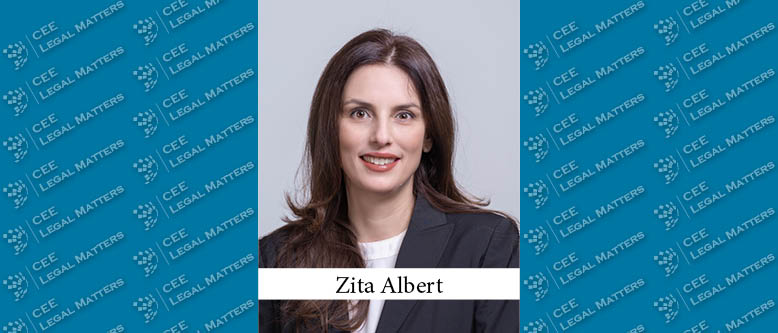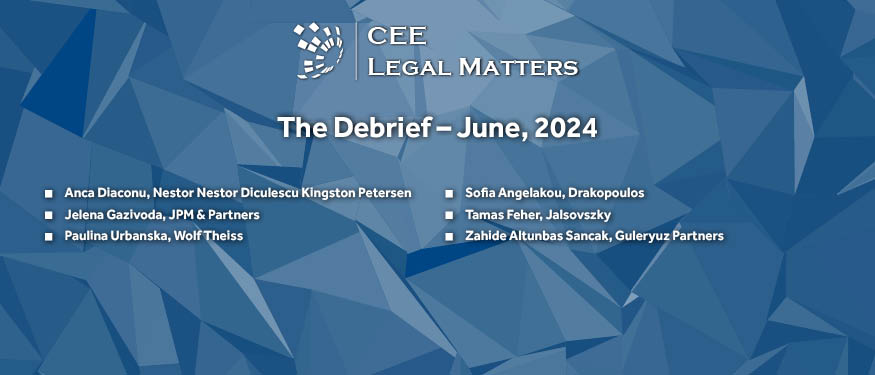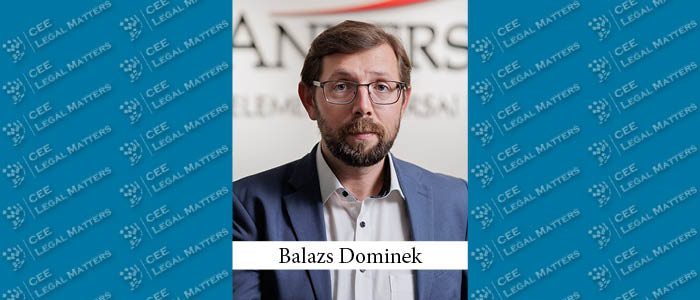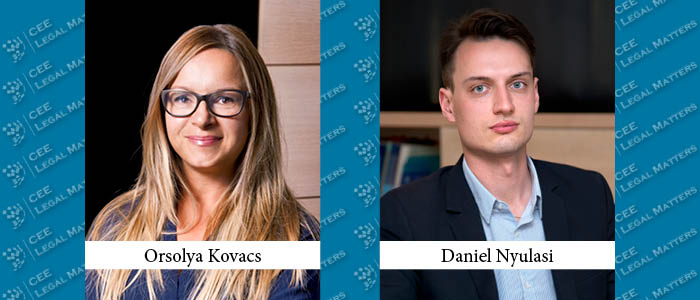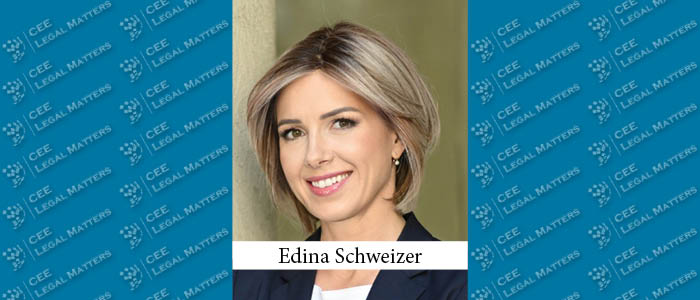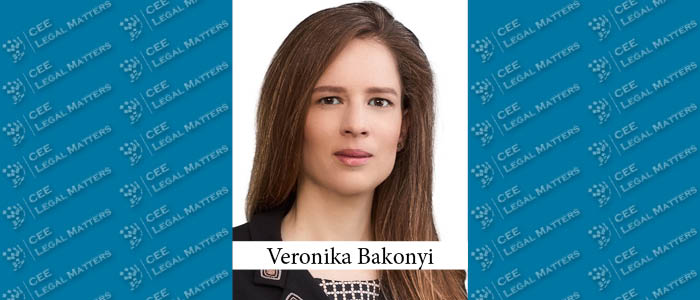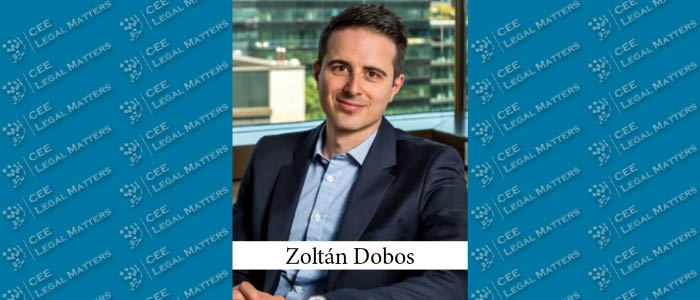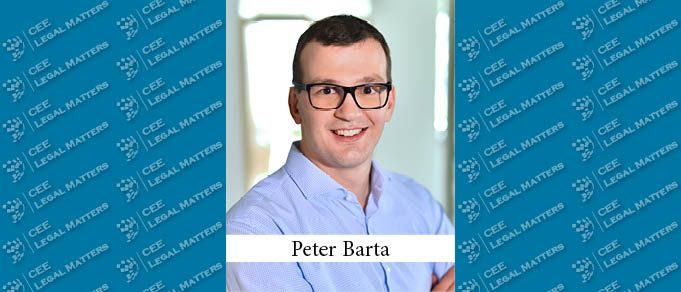Former Cerha Hempel Budapest Partner has joined Erdos Partners to head the firm's M&A and corporate practice.
Peter Ruff Makes Partner at Pontes Budapest
Peter Ruff was appointed to Partner at Pontes Budapest, where he will lead the corporate, M&A, private equity, and venture capital practices of the firm.
Greenwashing in Poland and in Hungary
Nowadays, climate and environmental issues are increasingly important to many consumers. Being “eco” has become fashionable nowadays. Environmental issues are now recognized as an important market factor that allows a given company to improve its market position.
Linklaters, Freshfields, Bittera, Kohlrusz & Toth, CMS, Wolf Theiss, Kinstellar, and Orrick Advise on AviAlliance' Sale of Budapest Airport to Corvinus and Vinci Airports
Linklaters, Freshfields, Bittera, Kohlrusz & Toth, and Herbert Smith Freehills have advised AviAlliance and co-shareholders on the sale of Budapest Airport to a consortium consisting of Hungarian state-owned Corvinus Zrt and French co-investor Vinci Airports for a total purchase price of EUR 3.1 billion and net debt of EUR 1.2 billion. CMS advised Corvinus. Kinstellar, working with Orrick, advised Vinci Airports. Wolf Theiss, working with Latham & Watkins, advised the lenders on financing the transaction.
The Debrief: June, 2024
In The Debrief, our Practice Leaders across CEE share updates on recent and upcoming legislation, consider the impact of recent court decisions, showcase landmark projects, and keep our readers apprised of the latest developments impacting their respective practice areas.
To read, or Not To Read, That Is Not the Question Anymore. Changes to the Reading Obligation in Notarial Procedures in Hungary
The Hungarian Parliament recently adopted amendments to the notarial procedure, introducing significant changes that affect the reading of documents during notarial acts from 1 January 2025.
The Corner Office: Client Relationship Dealbreakers
In The Corner Office, we ask Managing Partners at law firms across Central and Eastern Europe about their backgrounds, strategies, and responsibilities. While in the legal field maintaining client relationships is vital, there are occasions when law firms must end engagements. To explore some of the reasons that might lead to this, we asked: After accepting mandates, what have been the main reasons for which you ended up having to drop clients?
Hungary’s Automotive Sector: Keeping an Eye on the Road
Heralded as a cornerstone of the national economy, the Hungarian automotive sector faces significant challenges but also promising opportunities. Baker McKenzie Partner Zoltan Hegymegi-Barakonyi, Lakatos, Koves & Partners Partner Adam Mattyus, Szecskay Senior Partner Judit Budai, and Kinstellar Sector Head and Senior Counsel Akos Nagy take a deep dive into the sector’s status amidst a backdrop of labor shortages, geopolitical shifts, and the government’s concerted efforts to continue growth and maintain global competitiveness.
Inside Insight: Sandor Zorad of MET Group
After eight years with the MET Group, Legal Director Sandor Zorad reflects on the company’s path to international expansion.
Know Your Lawyer: Balazs Dominek of Szabo Kelemen & Partners Andersen Attorneys
An in-depth look at Balazs Dominek of Szabo Kelemen & Partners Andersen Attorneys covering his career path, education, and top projects as a lawyer as well as a few insights about him as a manager at work and as a person outside the office.
Hungary: The Network Development Plan for Electricity System 2023 Has Been Approved
On February 14, 2024, the Hungarian Energy and Public Utility Regulatory Authority (MEKH) approved the Network Development Plan 2023 submitted as a result of the coordinated work of the Hungarian TSO (transmission system operator – MAVIR Zrt.) and distribution network operators.
Edina Schweizer Joins Dentons as Partner and Head of the Hungarian Banking and Finance Team
Former Noerr Partner Edina Schweizer has joined Dentons as Partner and Head of the Hungarian Banking and Finance team. Barbara Vighne Herczegfalvi also joined as an Associate.
Kinstellar Advises MOL on EUR 1.3 Billion Polyol Project in Hungary
Kinstellar has advised the MOL Group on its EUR 1.3 billion new polyol complex in Tiszaujvaros, Hungary.
Veronika Bakonyi Joins Lakatos, Koves and Partners
Former Gardos Mosonyi Tomori Partner Veronika Bakonyi has joined Lakatos Koves and Partners' Banking Finance and Capital Markets team as an Attorney at Law.
Checking In: Implementing Whistleblowing Regulations in CEE
For our Checking In feature, we reach out to partners and heads of practice across CEE to learn how specific practice areas are faring in their jurisdictions. For this piece, we asked firm Labor experts: Have whistleblowing regulations been implemented in your jurisdiction and would you advise companies to use an external solution or an in-house one? Why?
Noerr Hungary Changes Course To Go Solo
Despite the original plan to transfer to Kinstellar, the Noerr Budapest office will continue as an independent firm from June 1, 2024.
The Supreme Court Has Ruled: Losers Must Pay!
In a previous article, we analyzed the phenomenon where courts typically reduce the attorney fees awarded to the winning party. This essentially forces the winner to incur unjustified losses, indirectly causing market distortion. Now, the Supreme Court has responded to this phenomenon with a precedent-setting, binding decision. Let's first look at the key developments and then how this affects litigation strategy!
The Hidden Pitfalls of Transfer Pricing
In the audit practice of the Hungarian Tax and Customs Administration (HTA), the audit of transfer pricing is gaining importance. Moreover, the relevant regulations are becoming more complex with each passing year. As the deadlines for transfer pricing documentation approach, it is worth reviewing what hidden pitfalls should be avoided when preparing documentation and providing data.

